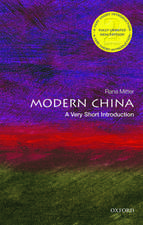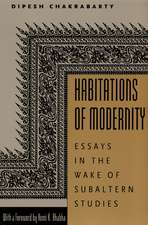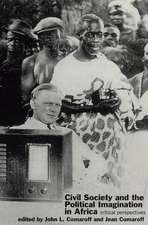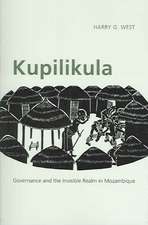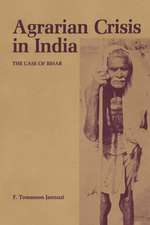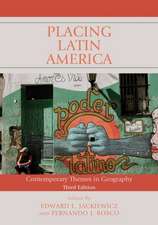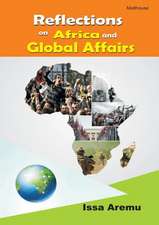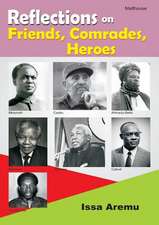Bringing the Empire Home: Race, Class, and Gender in Britain and Colonial South Africa
Autor Zine Magubaneen Limba Engleză Paperback – 5 ian 2004
How did South Africans become black? How did the idea of blackness influence conceptions of disadvantaged groups in England such as women and the poor, and vice versa?
Bringing the Empire Home tracks colonial images of blackness from South Africa to England and back again to answer questions such as these. Before the mid-1800s, black Africans were considered savage to the extent that their plight mirrored England's internal Others—women, the poor, and the Irish. By the 1900s, England's minority groups were being defined in relation to stereotypes of black South Africans. These stereotypes, in turn, were used to justify both new capitalist class and gender hierarchies in England and the subhuman treatment of blacks in South Africa. Bearing this in mind, Zine Magubane considers how marginalized groups in both countries responded to these racialized representations.
Revealing the often overlooked links among ideologies of race, class, and gender, Bringing the Empire Home demonstrates how much black Africans taught the English about what it meant to be white, poor, or female.
Bringing the Empire Home tracks colonial images of blackness from South Africa to England and back again to answer questions such as these. Before the mid-1800s, black Africans were considered savage to the extent that their plight mirrored England's internal Others—women, the poor, and the Irish. By the 1900s, England's minority groups were being defined in relation to stereotypes of black South Africans. These stereotypes, in turn, were used to justify both new capitalist class and gender hierarchies in England and the subhuman treatment of blacks in South Africa. Bearing this in mind, Zine Magubane considers how marginalized groups in both countries responded to these racialized representations.
Revealing the often overlooked links among ideologies of race, class, and gender, Bringing the Empire Home demonstrates how much black Africans taught the English about what it meant to be white, poor, or female.
Preț: 249.62 lei
Nou
Puncte Express: 374
Preț estimativ în valută:
47.77€ • 52.09$ • 40.28£
47.77€ • 52.09$ • 40.28£
Carte tipărită la comandă
Livrare economică 24 aprilie-08 mai
Preluare comenzi: 021 569.72.76
Specificații
ISBN-13: 9780226501772
ISBN-10: 0226501779
Pagini: 216
Dimensiuni: 152 x 229 x 18 mm
Greutate: 0.32 kg
Ediția:1
Editura: University of Chicago Press
Colecția University of Chicago Press
ISBN-10: 0226501779
Pagini: 216
Dimensiuni: 152 x 229 x 18 mm
Greutate: 0.32 kg
Ediția:1
Editura: University of Chicago Press
Colecția University of Chicago Press
Notă biografică
Zine Magubane is an associate professor of sociology and African studies at the University of Illinois at Urbana-Champaign. She is the author of Postmodernism, Postcoloniality, and African Studies.
Cuprins
Acknowledgments
1. The Metaphors of Race Matter(s): The Figurative Uses and Abuses of Blackness
2. Capitalism, Female Embodiment, and the Transformation of Commodification into Sexuality
3. Savage Paupers: Race, Nomadism, and the Image of the Urban Poor
4. The Care of the Social Body: Gender Strife, Class Conflict, and the Changing Definitions of Race
5. "Truncated Citizenship": African Bodies, the Anglo-Boer War, and the Imagining of the Bourgeois Self
6. White Skins, White Masks: Unmasking and Unveiling the Meanings of Whiteness
7. What Is (African) America to Me? Africans, African Americans, and the Rearticulation of Blackness
Conclusion
References
Index
1. The Metaphors of Race Matter(s): The Figurative Uses and Abuses of Blackness
2. Capitalism, Female Embodiment, and the Transformation of Commodification into Sexuality
3. Savage Paupers: Race, Nomadism, and the Image of the Urban Poor
4. The Care of the Social Body: Gender Strife, Class Conflict, and the Changing Definitions of Race
5. "Truncated Citizenship": African Bodies, the Anglo-Boer War, and the Imagining of the Bourgeois Self
6. White Skins, White Masks: Unmasking and Unveiling the Meanings of Whiteness
7. What Is (African) America to Me? Africans, African Americans, and the Rearticulation of Blackness
Conclusion
References
Index


